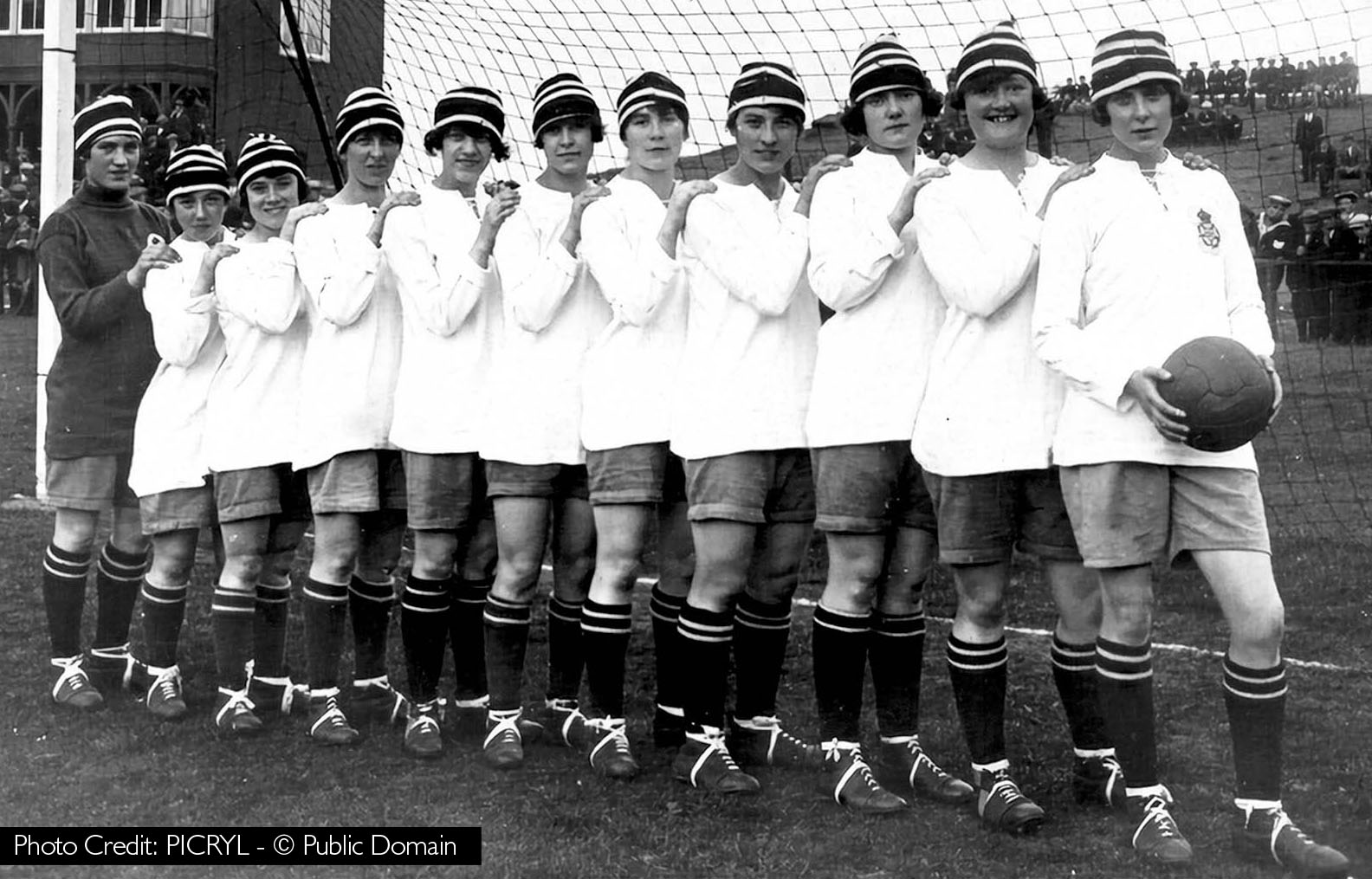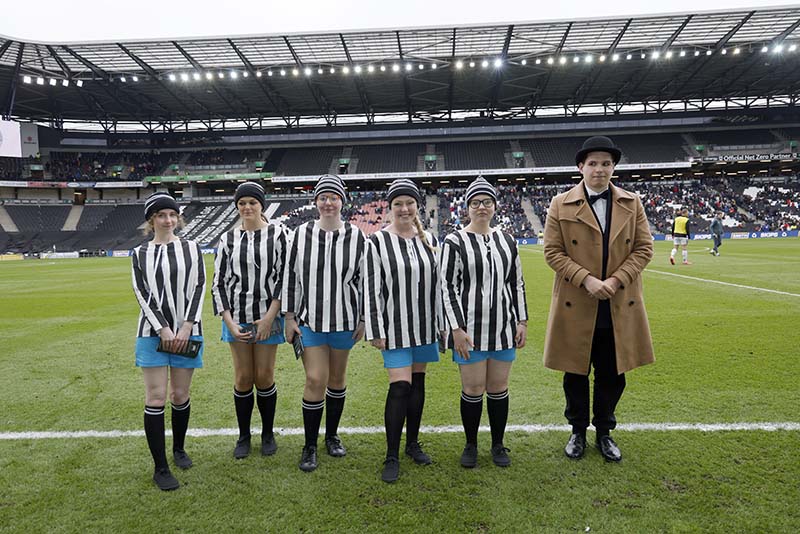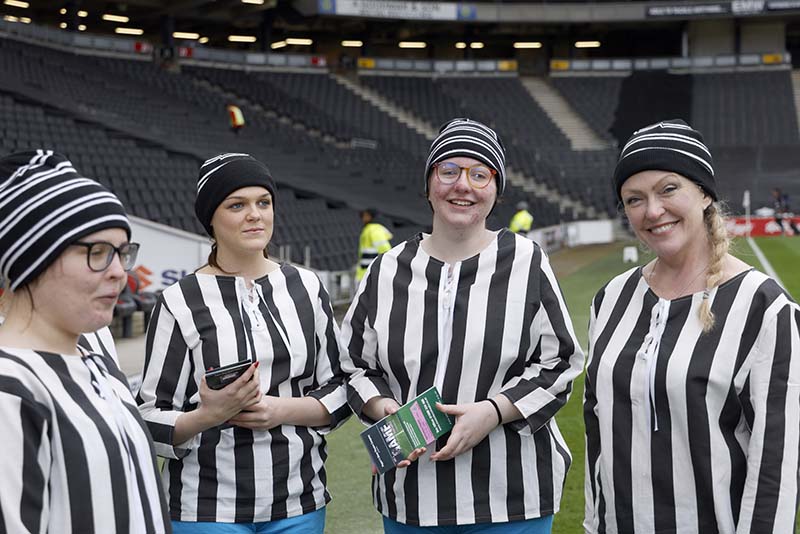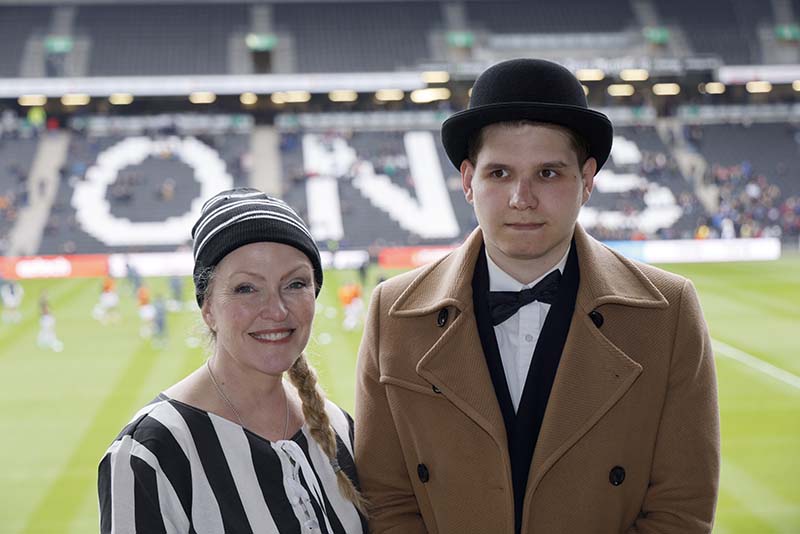Not A Game For Girls
13th May 202450 years of hurt - How The Football Association crippled women’s football, the team who helped it survive, and the play that helps their legacy live on.
In 1921, The Football Association (F.A.) banned women from playing football. The reason? The F.A. believed the game was unsuitable for women and famously said that women "ought not to be encouraged.”.

This decision stemmed from the success of a women’s football team called The Dick, Kerr Ladies F.C. - the trailblazers of their time who rose to fame during the first world war.
The F.A. was worried that during the war women’s football was becoming more popular and successful than men’s, and when the men returned home, they would have a lot of work to do to catch up with what the women had already achieved in a very short amount of time.
The Dick, Kerr Ladies were one of the most famous and celebrated women’s teams in the UK.

The team formed when working at Dick, Kerr and Company Ltd - a munitions factory in Preston – when management had the idea that the women needed some sporting release to run off their excess energy during their lunch breaks. The ladies were so good at playing football, that it encouraged other factories around the country to start their own team. Soon matches were played for charity raising money for injured soldiers.
It was on Christmas Day in 1917 that a charity match took place at Deepdale (home to Preston North End) between The Dick, Kerr Ladies and Arundel Coulthard Foundry. Over 10,000 fans watched the Dick, Kerr’s win 4-0. The match raised over £200 for charity, which is £40,000 in today’s money.
The match was the idea of Alfred Frankland, the factory’s office administrator, who said that he was “taking women’s football from the factory yards and waste grounds and putting it on a level playing field with the men’s game.”

The Dick, Kerr Ladies became incredibly popular in 1920 having represented England in their first international game against France winning 2-0 and setting a world record-breaking attendance figure for women’s football at a Boxing Day match playing in front of an estimated 53,000 fans, with a further 14,000 queuing outside the ground. This record was beaten almost 99 years later in 2019 by Atlético Madrid and F.C. Barcelona.
Uncomfortable by The Dick, Kerr Ladies' achievements - which included winning 759 of their 833 matches, raising thousands of pounds for injured soldiers through charity football matches, playing in front of record-breaking crowds and internationally, plus many other triumphs - The Football Association put a stop to women playing on official pitches and imposed a ban, which lasted for 50 years.
This fatal decision was aided by 22 doctors who were invited to watch The Dick, Kerr Ladies F.C. in action. Doctor Mary Scharlieb, a Harley Street Physician said, "I consider football a most unsuitable game, too much for a woman’s frame". It was here that the damage to women’s football was done.

The Dick, Kerr Ladies F.C. continued to play during the ban finding unofficial pitches to use and playing in Europe and America. They weren’t going to let a ban stop them from breaking down barriers and making football a woman’s sport.
Without their strength, determination and tenancy, women’s football as we know it today may not exist. What a thought. Their legacy lives on – with these women being an inspiration to many, with thousands of women and girls taking up and enjoying the beautiful game.
Just think how far forward women’s football in the UK would be if it wasn’t banned. Many other countries have supported women’s football from its beginnings. Football in America was incredibly popular from the 1920s - when it was banned in the UK - and the popularity continued to grow. The U.S. is now seen as the top country in the world for women's football.
Women's football in the UK returned in 1971, but slowly and with lots of negative attitudes.
 It wasn't until 1995 we saw the England women's team play at The World Cup. It was here that the women's game started to make people sit up and watch.
It wasn't until 1995 we saw the England women's team play at The World Cup. It was here that the women's game started to make people sit up and watch.
In 2018, the first professional women's football league started in the UK. That's only six years ago.
We're behind other countries in the world in the development of women's football. There's a long way to go. We have the Dick, Kerr Ladies to thank for inspiring women and girls to take up football and fight for gender parity on the field.
 If you’d like to see this piece of important history played out on the stage, our community theatre company, Pepper’s Ghost, is performing ‘Not A Game For Girls’ by Benjamin Peel at Stantonbury Theatre from 16th - 19th May.
If you’d like to see this piece of important history played out on the stage, our community theatre company, Pepper’s Ghost, is performing ‘Not A Game For Girls’ by Benjamin Peel at Stantonbury Theatre from 16th - 19th May.
Our talented local theatre company, which includes students from MK College, is excited to retell The Dick, Kerr Ladies' inspirational story using a mixture of real-life and fictional characters and blending drama, songs and choreographed games. If you enjoy drama, history and football then this play is for you.

Rosemary Hill, Artistic Director of The Play’s The Thing Theatre Company and Director of Not A Game For Girls says: “The Dick, Kerr Ladies is an important part of our football history, and their story has been very much overlooked. It isn’t until recent years as women’s football has grown in popularity that we start hearing of their incredible achievements and how much they have done for women’s sport.

“The positive effect that the Dick, Kerr Ladies had on women’s sports remains today. We’re honoured to be re-telling their inspirational story in ‘Not A Game For Girls’".
Come and support your local theatre company!
Be inspired by this remarkable true story, and enjoy an evening cheering on our Dick, Kerr Ladies!
Book your tickets now!